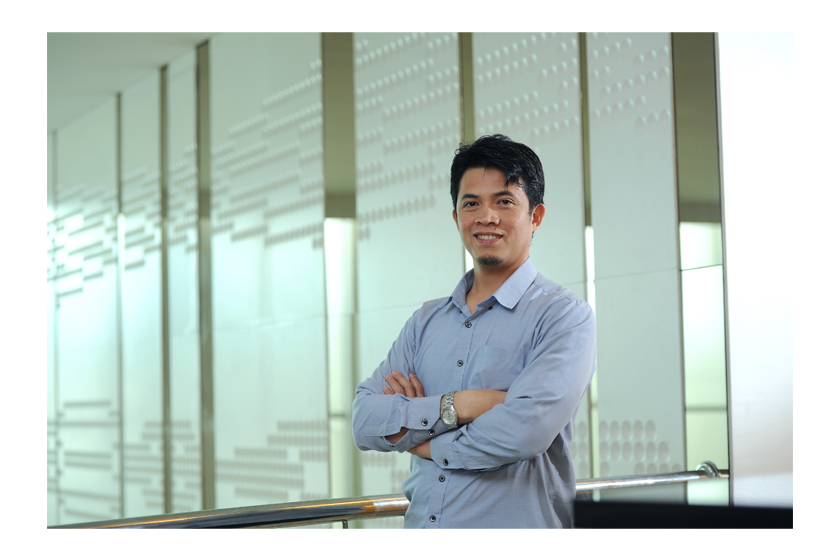The field of dentistry is particularly risky for COVID-19 transmission, as patients cannot wear masks during treatment, increasing the potential of virus spreading through aerosol, or tiny particles of floating materials that can include virus.
Recently, a team from the Faculties of Engineering and Dentistry at Universitas Hasanuddin in Makassar, South Sulawesi, led by Dr Muh Anshar, designed a device that helps dentists remove potentially hazardous aerosols and improves workplace safety amidst the COVID-19 pandemic.
The idea for the device, called the Extraoral Mobile Aerosol Guide Channel (E-MAGIC), came about in an online meeting between the faculties. Like other areas of healthcare, dentistry is having to adapt and adjust procedures to reduce the risks of COVID-19.
E-MAGIC works by suctioning aerosol, saliva, and blood sprays from the patient’s mouth into an exhaust. The aerosol is then taken through a cleaning chamber and undergoes a four-layer disinfection process: HEPA 10, HEPA 12, UV-C, and HEPA 12. The bacteria and virus are filtered through the first two HEPA filters, and then sterilised with the UV-C light. To further ensure the air is clean and sterile, the air and aerosol undergo yet another round of HEPA filtering as it exits the E-MAGIC device.
In March 2020, the team led by Dr Anshar—an Australia Awards alumnus who is Director for the Centre for Social, Cognitive Robotics and Advanced Artificial Intelligence Research (Department of Electrical Engineering) and also an Adjunct Fellow at the University of Technology Sydney—began designing the system.
By mid-May, it began building the prototype, E-MAGIC UH01, which was ready by early June. Initial tests at the Dental and Mouth Hospital at Universitas Hasanuddin showed it could effectively absorb aerosol sprays, kill bacteria and viruses, and in the process, provide clean air. Initial testing showed the E-MAGIC UH01 was effective in destroying virus including COVID-19. To confirm this, there will be follow up testing by the team of doctors that are part of the E-MAGIC team.
“The design of the mechanism allows for superior system monitoring and detection of bacteria and viruses, which ensures these can be disinfected properly,” said Dr Anshar, who earned a Masters by Research in Computer Science in 2009 and a PhD in Computer Systems in 2017 from the University of Technology Sydney, under the Australian Government-funded Australia Awards Scholarships and the Australian Leadership Award Scholarships respectively.
“One of the best features of the E-MAGIC is its low cost compared to other similar imported devices. E-MAGIC will cost IDR 10 million, or approximately AUD 1,000. Imported devices with similar specifications can cost double that,” noted Dr Anshar, who is also a lecturer in Electrical Engineering and Head of the Indonesia Australia Social Cognitive Robotics Research Collaboration UNHAS-UTS.
The HEPA filters that E-MAGIC uses are also washable, eliminating the need to buy replacement filters, which helps keep costs down in the long term.
Another benefit is the short production time. The prototype took three weeks to build, due to the waiting time for imported components. The final iteration of E-MAGIC will take a week to produce.
“Approximately 70% of the components are locally sourced, while 30% of the components need to be imported,” said Dr Anshar, who received the Australian Government funded Alumni Grant Scheme to enhance the quality of water supply in South Sulawesi in 2017 and 2018.
A number of dentists and hospitals have expressed their interest in the E-MAGIC. In preparation for commercial production, the device is currently undergoing clinical trials, several of which have been successful. The team is looking into incorporating a smarter control mechanism next.
“We hope to contribute to and support safe dental practice for the general public and dentists who are vulnerable to the COVID-19 virus,” said Dr Anshar. “Not only dentistry, but also other medical fields that deal with aerosol, such as the ear, nasal, and throat practice.”





 E-MAGIC: Designing safer dental practice during the COVID-19 pandemic
E-MAGIC: Designing safer dental practice during the COVID-19 pandemic
